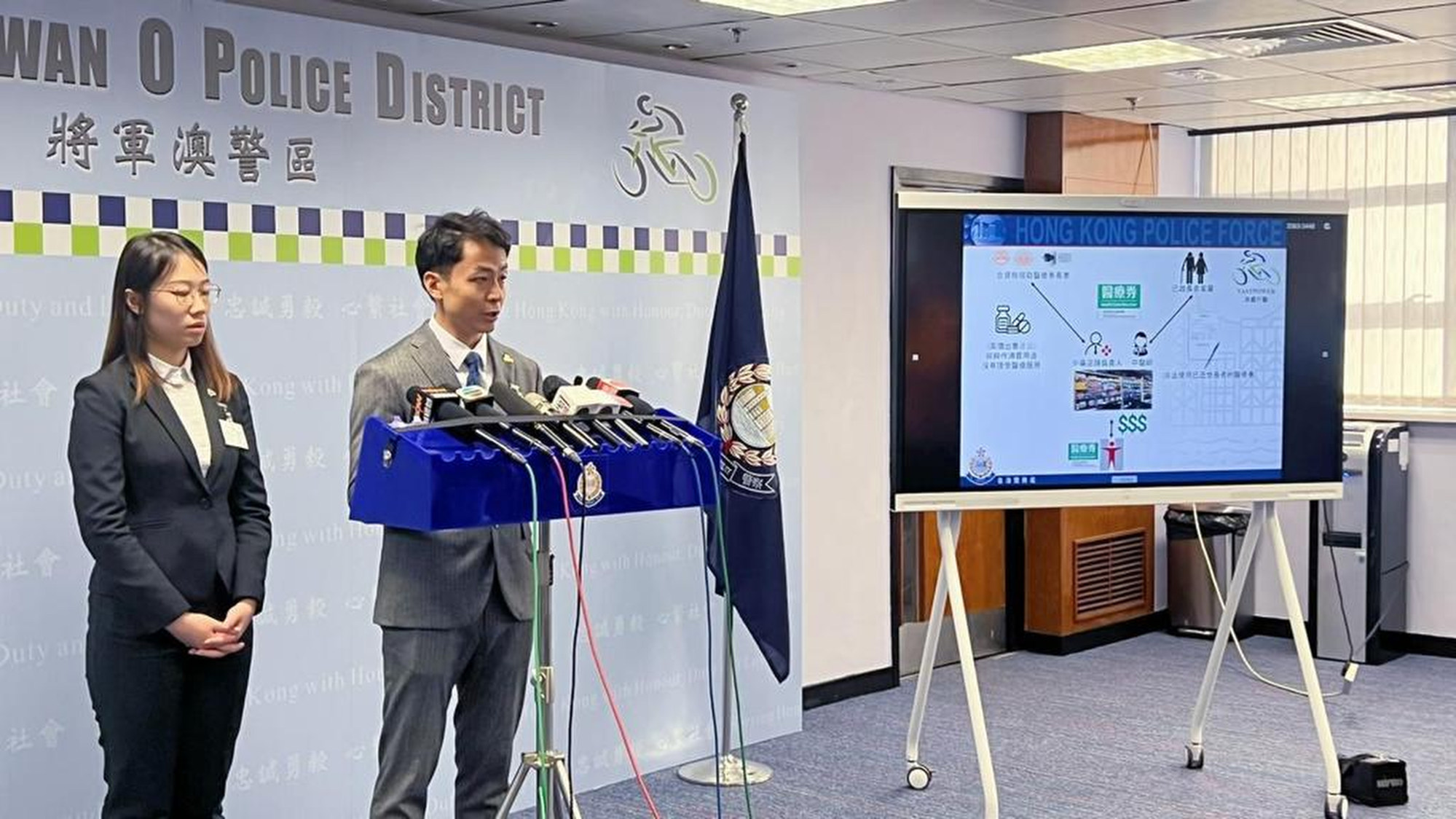Hong Kong police arrest 13 on suspicion of medical voucher fraud, including 7 traditional Chinese medicine practitioners
Following a referral by the Department of Health about the potential misuse of the vouchers, police launched an investigation, which led them to focus on seven dispensaries, all located in Tseung Kwan O.

The stores offered consultations by registered herbalists, as well as traditional Chinese medicine and dried seafood.
Senior Inspector Chan Kwong-hei of the Tseung Kwan O district crime squad said the practitioners allegedly conspired with family members of deceased voucher holders to use the remaining balance.
“Some family members brought the identity cards of their deceased relatives to support the use of the remaining balance at these stores,” he said. “During the process, unscrupulous practitioners allegedly colluded with these family members to forge signatures on the consent forms in order to deceive the government subsidy [scheme].”
Hong Kong pharmacy operator accused of providing illegal voucher cash-in bid
A source familiar with the case said the claims involved more than 10 voucher holders, all dead.
He said some store operators allegedly took advantage of elderly people who did not want the vouchers to go to waste and convinced them to use the remaining balance to buy products.
“These stores sold items such as dried seafood and medication at prices about 10 times higher than the market price,” the senior inspector said.
Chan said the operators were suspected of instructing the elderly residents to falsely claim they had received medical consultation services.
Hong Kong man arrested for pretending to be Covid patient to get free medication
He added that the operators then allegedly conspired with registered herbalists to claim relevant voucher subsidies and embezzle public funds, with the practitioners taking a share of the proceeds.
After gathering evidence, police apprehended nine men and four women in a series of raids on Wednesday and Thursday.
The suspects, aged 40 to 83, were detained on suspicion of conspiracy to defraud – an offence punishable by up to 14 years in jail. The suspects have been released on bail pending further investigation.
The healthcare voucher scheme must be used to uphold the health of the elderly
Acting chief inspector Chan Yu-wing said using illegal means to deceive the government by misusing healthcare vouchers would “waste resources intended to assist the elderly, go against ethical principles and potentially constitute fraud”.
“The healthcare voucher scheme must be used to uphold the health of the elderly and alleviate pressure on public hospitals, and it should never provide an opportunity for unscrupulous businesses to exploit the vouchers for their personal gain,” she said.
The investigation was still under way and further arrests were possible, she added.
Under the Elderly Health Care Voucher Scheme, introduced in 2009 and made permanent in 2014, eligible residents aged 65 or older are given a HK$2,000 voucher each year to help pay for certain medical services in the private sector, including consultations with traditional Chinese medicine practitioners.
Users must receive healthcare services in person before they can use their vouchers to settle fees. Vouchers cannot be used for purchasing products, redeemed for cash, or shared with others.